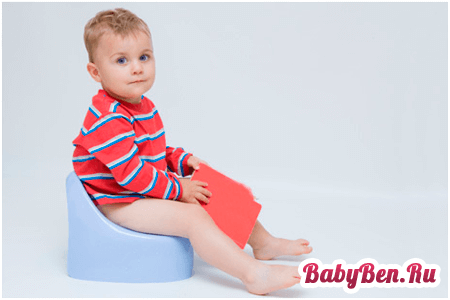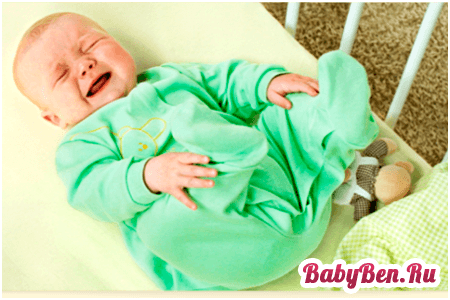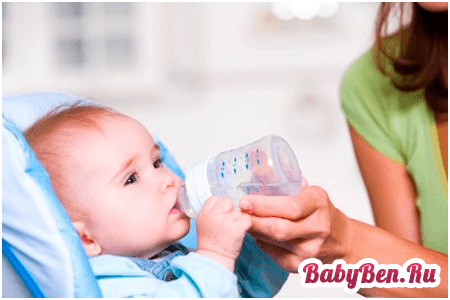
Diarya is a common violation of stools in children. How to treat diarrhea in a baby? What is the cause of this disorder?
The content of the article
What is diarrhea?
Diarya is a frequent and abundant intestinal emptying, while the fecal masses have a liquid consistency. If the child defeats more often than normal, the feces change their usual state, blood, mucus and pus are observed in the chair, then this indicates the presence of pathology. If the diarrhea appears unexpectedly and stops after 1-2 weeks, we can talk about the acute course of this disease. Chronic diarrhea proceeds for more than two weeks.
Diarrhea can be caused by the following factors:
• food passes through the intestines too quickly, so in the large intestine there is a violation of the absorption of water and electrolytes, as a result of this, feces increase in volume;
• if in the gap of the intestine there is a pathological increase in the secretion of fluid;
• with a deficiency of development and weak activity of enzymes involved in digestion;
• with a weak protective function of the intestine

Why does the baby have diarrhea?
The most common reason for the development of diarrhea is the food factor: if an increased amount of food enters the immature organism, if it contains excessive amount of food substances that are distributed imbalance. If the baby receives breast milk, diarrhea can be caused by mother’s use, ketchup, mayonnaise, rich broths, foods with preservatives, some vegetables and products that cause allergies.
If the child goes to another milk mixture or begins to drink other water in composition, it is also often accompanied by diarrhea. In addition, the occurrence of diarrhea affects:
• lactose deficiency;
• infectious diseases;
• intestinal dysbiosis;
• reaction to taking some drugs.

Treatment of diarrhea in infants
Treatment of diarrhea in infants must take place under the supervision of a doctor! If the baby is observed: the temperature is more than 38 s; weakness, drowsiness; Signs of dehydration of the body are dry lips and tongue, flabby skin, lack of urination, facial features and eyeballs burst, then the child needs to immediately be hospitalized in a hospital!
In the case when operational medical care for one reason or another is impossible, first of all, parents should prevent dehydration. Otherwise, this threatens with rapid dehydration leading to the manifestation of shock and even to the death of the baby.
Fully replenishment is made by Reidron, Toural, etc., which should always be at home. If there are no such drugs, you can independently prepare a rehydration solution of 1-2 tablespoons of sugar dissolved in one liter of drinking water, half a teaspoon of salt and drinking soda. If diarrhea has begun recently, the solution is given 10 ml per 1 kg of the child’s weight, after each bout of vomiting or defecation. If dehydration has already begun, the amount of salt solution increases to 50-100 ml per 1 kg of child weight. This amount is given for 6 hours after each defecation or vomiting. You need to drink the baby about once every 10-15 minutes on a teaspoon or tablespoon, no more, since an increase in the portion of the solution can cause a vomit.

If the infant is increased in a temperature of more than 38.5 ° C, parents should give him antipyretic drugs based on paracetamol. Medicines are administered through the mouth, candles in this case are useless. If the baby suffers from convulsions, congenital cardiovascular or pulmonary diseases, and if his age is less than 3 months, you need to lower the temperature at 38C.
To consolidate the stool and in order to remove toxic substances from the child’s body, it is prescribed sorbent preparations - “diosmectide”, “smecta”, etc. The drug is diluted (1 bag) in 50 ml of drinking water and soldered to the child in small portions during the day.
Since defecation for diarrhea is very frequent, the delicate skin of the child is irritated at the same time, and therefore washing with diarrhea is necessary after each act of defecation.
